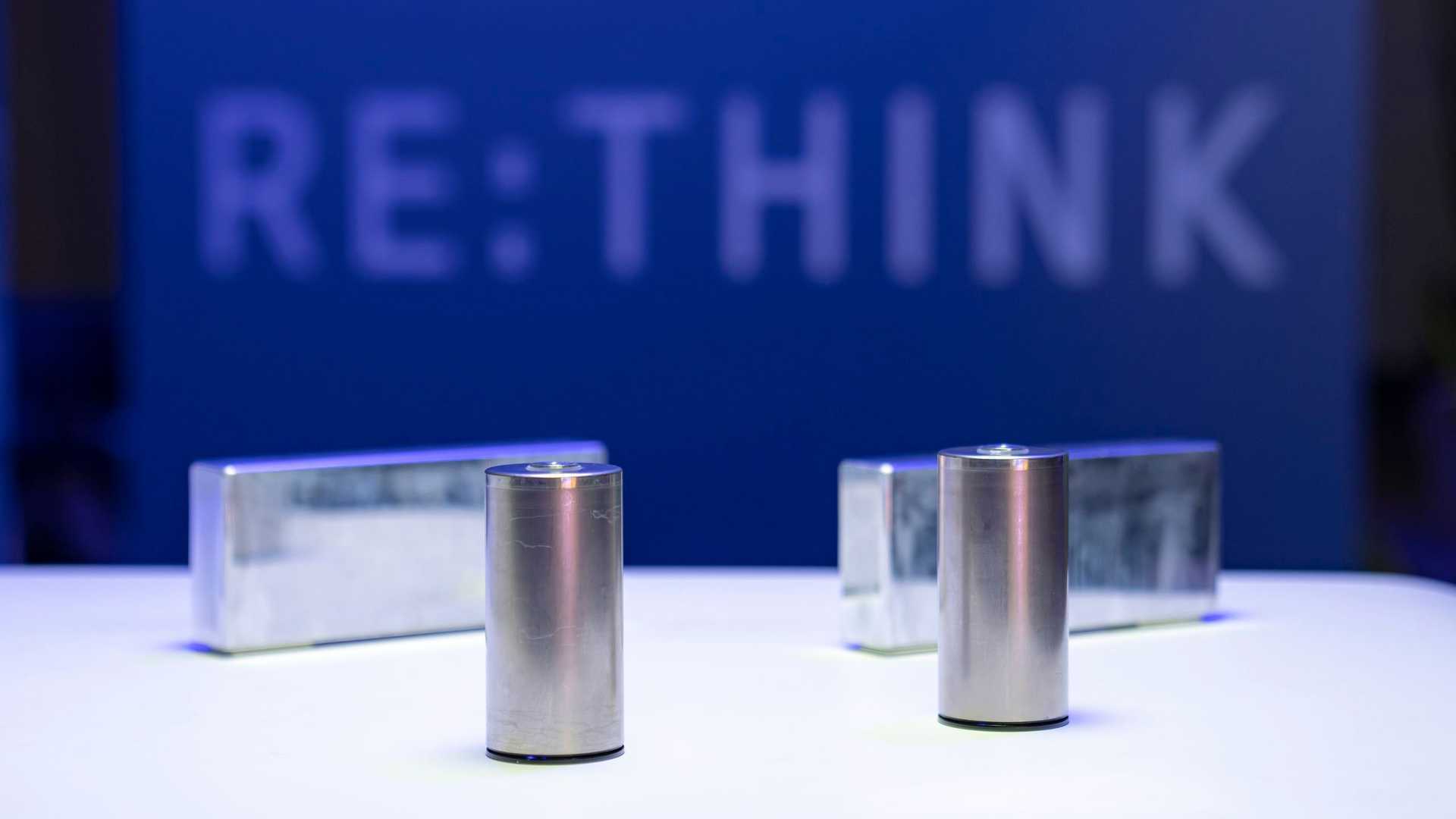“Tesla needs to close the gap with us. In fact, we don’t see a gap to Tesla.” This is how BMW Group’s production boss, Milan Nedeljkovic, replied to a question from Automotive News Europe about how the German company would close the gap with rivals, including what is possibly the most talked-about name in the EV industry, Tesla.
Nedeljkovic’s statement shows just how confident the German automaker is in its new cylindrical-type battery cells, the first samples of which started rolling off the production line at the company’s cell manufacturing complex that’s located about 12 miles east of Munich, Germany.
For a bit of context, the entire BMW Group, which includes BMW- and Mini-branded models, sold fewer than 100,000 EVs in the third quarter, while Tesla delivered 435,000 battery-powered cars in the same period. However, there is a silver lining in the growth that each of these companies saw in the last three months, with BMW Group selling nearly 80 percent more EVs compared to the same period last year, while Tesla increased its global deliveries by 27 percent.
Compared to the previous generation of prismatic lithium-ion battery cells, BMW’s Gen 6 cylindrical cells have the potential to cut manufacturing costs in half, all while offering up to 30 percent more range on a similarly sized pack thanks to a higher energy density, resulting in roughly 500 miles of travel on a full charge. DC fast charging will also be possible at 270 kW.
The German automaker’s round cells have a 46-millimeter diameter and will come in two height variants of 95 mm and 120 mm, making them a bit bigger than Tesla’s own 4680-type cells that are 46 mm in diameter and 80 mm tall.
“What we have here is a battery design that suits our products, and our idea of how driving performance is fulfilled in our cars,” Nedeljkovic said during a media event held last week at the automaker’s cell manufacturing complex.
With all this being said, however, BMW’s new cells aren’t quite ready for prime time yet. For now, sample units are being manufactured at the company’s own facility, with delivery-intent cells slated to be made at up to six battery gigafactories around the world by BMW’s suppliers CATL and Eve Energy starting in 2025. That’s when the first series-production EVs based on the Neue Klasse architecture are set to debut.
This way, BMW reckons it will avoid the “high volatility” of large-scale battery cell production. Instead, it wants to focus on perfecting the cells in its in-house facilities and then give the recipe and manufacturing process to its suppliers, who will start building cells in Europe, China, and North America.
“If you want to cook something really nice you need a good recipe, and the recipe determines the taste,” said Nedeljkovic. “We develop the recipe, namely the chemistry and physics of a cell. We change the content and test how each single cell ingredient will influence performance.”
Besides the classic lithium-ion format, BMW is already working on other chemistries for the Gen 6 cells, which has the potential to lower costs even further.


generic ivermectin online – stromectol 3mg brand tegretol 400mg
accutane online buy – linezolid 600mg without prescription linezolid over the counter
oral amoxicillin – buy diovan ipratropium 100 mcg without prescription
purchase azithromycin online cheap – order tinidazole 500mg nebivolol online order
order omnacortil 5mg – progesterone 100mg cheap progesterone without prescription
gabapentin usa – buy anafranil 50mg without prescription sporanox sale
augmentin over the counter – augmentin 375mg sale buy duloxetine generic
order acticlate for sale – acticlate ca buy glipizide cheap
order rybelsus pills – purchase rybelsus online cheap buy periactin 4 mg generic
tadalafil 10mg us – viagra pills 100mg viagra 25mg price
overnight delivery for viagra – buy sildenafil online order cialis 20mg pills
atorvastatin canada – atorvastatin 20mg canada buy prinivil online cheap
generic cenforce 100mg – buy chloroquine 250mg without prescription buy glucophage 1000mg online
lipitor price – purchase lipitor buy lisinopril 2.5mg without prescription
buy lipitor – lisinopril 2.5mg pill lisinopril 5mg canada
order omeprazole for sale – how to get atenolol without a prescription atenolol 50mg price
methylprednisolone 4mg pills – buy medrol buy aristocort 10mg generic
buy desloratadine 5mg generic – order loratadine for sale buy generic priligy 60mg
purchase cytotec online – xenical pills order diltiazem 180mg online
purchase acyclovir generic – order zovirax 400mg online cheap rosuvastatin without prescription
order generic domperidone 10mg – order motilium generic cyclobenzaprine
domperidone 10mg for sale – flexeril over the counter buy generic flexeril online
inderal 20mg ca – order inderal without prescription methotrexate 5mg ca
levofloxacin 250mg oral – how to get avodart without a prescription ranitidine buy online
brand nexium 20mg – sumatriptan 50mg over the counter imitrex generic
order mobic generic – meloxicam 7.5mg tablet flomax 0.4mg generic
order zofran 4mg sale – zofran 4mg ca simvastatin ca
buy valtrex 500mg generic – order valtrex 1000mg buy fluconazole 200mg pills
modafinil 200mg without prescription provigil 100mg price buy modafinil 200mg for sale buy modafinil without a prescription order provigil 200mg pills generic provigil modafinil 100mg ca
This is the kind of literature I truly appreciate.
Greetings! Extremely serviceable suggestion within this article! It’s the crumb changes which wish obtain the largest changes. Thanks a portion in the direction of sharing!
azithromycin 500mg price – order ofloxacin 200mg pill buy flagyl 200mg pills